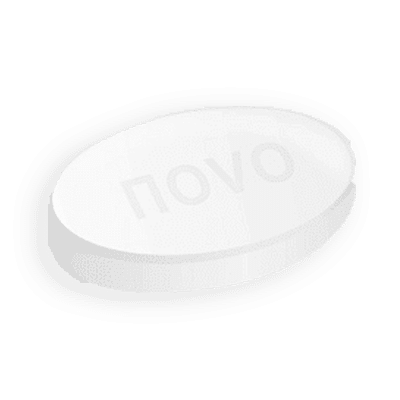I have been using Doxycycline for a long time to treat periodontitis, and I notice positive results. At first I was afraid of possible side effects, but my body accepted the drug quite well. Inflammation began to bother me less, and the condition of my gums improved significantly.

Doxycycline
- Discreet shipping
- Pay with crypto
- Quality products
- BTC,
- ETH,
- USDT,
- USDC
What is it?
Doxycycline is a synthetic antibiotic that belongs to a broad spectrum of antibacterial agents. The drug was developed on the basis of tetracycline and is used to treat many different bacterial infections. These can include urinary tract infections, acne, gonorrhea, chlamydia, as well as periodontitis or gum inflammation. In addition, Doxycycline is effective against spots, rashes and acne-like lesions caused by rosacea.
Frequently asked questions
Composition
The composition of Doxycycline is based on the basic active ingredient, which itself is a derivative of tetracycline. There are no additional antibacterial components in the composition, which makes Doxycycline a highly specialized, but quite effective remedy. Thanks to its formula, Doxycycline conveys powerful antimicrobial properties that help in the fight against various infections. It is an antibiotic that is quickly absorbed by the body and provides a long-term effect in the fight against pathogens.
- Doxycycline as an active component.
- Controlled release capsules for a stable level of the drug in the blood.
- Lack of lactose and gluten to reduce allergic reactions.
How to use?
Using Doxycycline requires careful adherence to dosage and administration instructions. This medication should be taken after meals with plenty of water. This helps reduce irritation and inflammation of the esophagus that can occur when taking antibiotics. This medication can be taken as a single dose per day or in two divided doses with an interval of 12 hours between doses.
- Take after meals with a large glass of water to minimize irritation of the esophagus.
- The dose can only be divided into two parts if specifically recommended by the doctor.
- Avoid taking with dairy products, as this may reduce the absorption of the drug.
- Do not crush or chew the delayed-release tablets, the capsules should be swallowed whole.
- If using a suspension, shake it before taking and use a measuring spoon for accurate dosing.
How does it work?
The mechanism of action of Doxycycline is its ability to inhibit protein synthesis in bacterial cells, which ultimately stops their growth and development. This is achieved by binding to the 30S ribosomal subunit of microorganisms, which interferes with the normal process of synthesis of important proteins. As a result, bacteria cannot multiply and spread, which allows the body to successfully cope with the infection.
This antibiotic has a bacteriostatic effect, that is, it does not kill bacteria directly, but suppresses their reproduction. Due to this property, Doxycycline has become an important element in the treatment of various chronic infections and diseases associated with bacterial flora. The long-term action of the drug and its resistance to the acidic environment of the stomach makes it an ideal choice for patients with chronic infections.
Indications
Indications for use are related to a wide range of infections in which Doxycycline can be an effective remedy. It is important to understand that the use of this antibiotic should be strictly in accordance with the doctors recommendations to avoid the emergence of resistance.
- Urinary tract infections, including cystitis and urethritis.
- Severe acne requiring antibiotic therapy.
- Gonorrhea, especially in patients allergic to penicillin.
- Chlamydia, as a sexually transmitted infection.
- Periodontitis or gum inflammation as a support for the main treatment.
- Rosacea, accompanied by a rash and acne-like lesions.
Contraindications
Contraindications for the use of Doxycycline are varied and require special attention in patients with certain health conditions or allergic reactions. Particular attention should be paid to the possibility of developing an allergy in people who have previously experienced reactions to antibiotics of the tetracycline group.
- Hypersensitivity to Doxycycline itself or to other antibiotics of the tetracycline group.
- The period of pregnancy, especially the second half, due to the risk of affecting the development of the fetus.
- Lactation, since the drug can penetrate into breast milk.
- Age under 9 years, since this can affect the growth of teeth.
- Severe liver failure, since Doxycycline can increase the load on the liver.
Side effects
Side effects of Doxycycline may occur in some patients, especially if the doctors instructions are not followed or if the body is particularly sensitive to the active ingredient. It is important to understand that the occurrence of side effects should be a reason to contact a specialist.
- Headache and dizziness, especially with a sharp change in body position.
- Visual disturbances, such as blurred vision, which requires immediate consultation with a doctor.
- The appearance of fever and chills while taking the drug.
- Abdominal pain and decreased appetite as a possible reaction to the drug.
- Jaundice or pale skin may be a signal for immediate medical attention.
- Bruising and light bleeding for no apparent reason may be associated with the effects of the drug.
Doxycycline Reviews and Experiences
Took Doxycycline during an acute urinary tract infection. Felt the effect on the third day: the pain decreased and the burning disappeared. The only thing is, I tried to follow the instructions very closely to avoid side effects.
The medicine was prescribed for acne after trying other remedies. It was a bit scary that it was an antibiotic, but after two weeks the skin became noticeably clearer. The specialist warned about the possible appearance of dry skin, but fortunately everything worked out.



